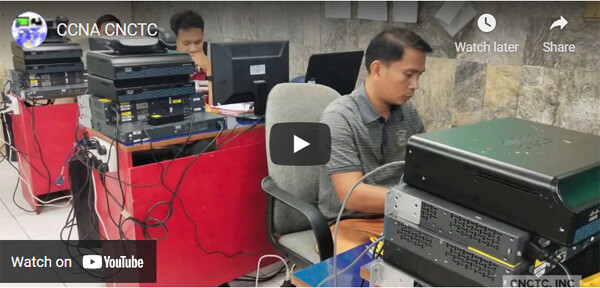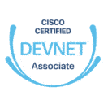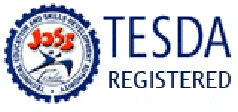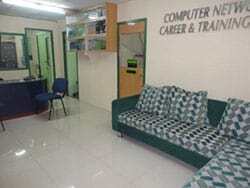[wp-video-popup video=”https://www.youtube.com/embed/Z01P3MTEco4″]

Key Features
- 3 days Instructor-Led Live Online Classroom
- Webex Virtual Class for interactive near classroom experience
- Access to CCNA Remote Lab (No Simulator)
- Access to Remote Lab PC for Hands-On activities
- Unlimited Practice exams
- Integrated Courseware in the Learning Management System
- Step by Step guide for challenging hands-on lab activities
- Flexible Schedules – Both Weekdays and Weekends Classes
- Get Trained by Cisco Certified DevNet Expert Trainer with Over 15 Years of Industry Experience
- No. 1 Training Center for Cisco Certified DevNet Courses
- E-learning Access for Pre-course and Post Training Support
- Best Price Guaranteed for Cisco Certified DevNet Courses
Key Features
- 3 days Instructor-Led Face to Face Classroom training
- We are a TESDA Registered Training Center
- Offering Flexible Schedules – Both Weekdays and Weekends Classes
- Get Trained by Cisco Certified DevNet Expert Instructor with Over 15 Years of Industry Experience
- No. 1 Training Center for Cisco Certified DevNet Courses
- We Guarantee Best Price for Cisco Certified DevNet Courses
Key Features
- Gain the technical skills needed in the workplace. 1 on 1 training is the best way to learn
- Quickest way to master any of our course offerings.
- Experience superb hands-on laboratory activities and unobstructed attention from your trainer.
- Guaranteed to start the Training
TRAINEE FEEDBACKS
COURSE DESCRIPTION :
This course will teach you all the necessary knowledge and skills in software development and design including understanding and using APIs, Cisco platforms and development, application development and security, and infrastructure and automation.
CERTIFICATION EXAM:
200-901: DevNet Associate Exam v1.0 = USD 300
COURSE DELIVERY:
Instructor-led, classroom/laboratory-delivery learning model with structured hands-on and minds-on activities and laboratory activities.
ENTRY REQUIREMENTS:
Before you get this course you need to at least have the following:
- Basic computer literacy
- Basic PC operating system navigation skills
- Basic Internet usage skills
- Hands-on experience with a programming language, specifically Python
EMPLOYMENT OBJECTIVES
Upon completion of the course, trainees will be qualified to be a Systems engineer or IT systems manager.
CCNA DevNet Syllabus
Chapter 1 - Software Development and Design
- Data formats (XML, JSON, YAML)
- Python data structures
- Concepts of test-driven development
- Software development methods (agile, lean, waterfall)
- Methods, functions, classes, and modules
- Common design patterns (MVC and Observer)
- Advantages of version control
- Common version control operations with Git:
- Clone
- Add/remove, Commit, Push / pull, diff
- Merge and handling conflicts
Chapter 2 - Understanding and Using APIs
- REST API request
- API documentation
- Common usage patterns related to webhooks
- Constraints when consuming APIs
- Common HTTP response codes associated with REST APIs
- HTTP response code, request and API documentation
- Parts of HTTP response - response code, headers, body
- Common API authentication mechanisms: basic, custom token, and API keys
- Common API styles (REST, RPC, synchronous, and asynchronous)
- Construct a Python script that calls a REST API using the requests library
Chapter 3 - Cisco Platforms and Development
- Construct a Python script that uses a Cisco SDK given SDK documentation
- Cisco network management platforms and APIs (Meraki, Cisco DNA Center, ACI, Cisco SD-WAN, and NSO)
- Cisco compute management platforms and APIs (UCS Manager, UCS Director, and Intersight)
- Cisco collaboration platforms and APIs (Webex Teams, Webex devices, Cisco Unified Communication Manager including AXL and UDS interfaces, and Finesse)
- Cisco security platforms and APIs (Firepower, Umbrella, AMP, ISE, and ThreatGrid)
- Device level APIs and dynamic interfaces for IOS XE and NX-OS
- DevNet resources (Sandbox, Code Exchange, support, forums, Learning Labs, and API documentation)
- Concepts of model driven programmability (YANG, RESTCONF, and NETCONF) in a Cisco environment
Chapter 4 - Application Deployment and Security
- Edge computing
- Application deployment models (private cloud, public cloud, hybrid cloud, and edge)
- Deployment types
- Virtual machines
- Bare metal, Containers
- Components of CI/CD pipeline in application deployments
- Construct a Python unit test
- Interpret contents of a Dockerfile
- Docker images in local developer environment
- Application security issues related to secret protection, encryption (storage and transport), and data handling
- Firewall, DNS, load balancers, and reverse proxy in application deployment
- OWASP threats (such as XSS, SQL injections, and CSRF)
- Bash commands (file management, directory navigation, and environmental variables)
- Principles of DevOps practices
Chapter 5 - Infrastructure and Automation
- Programmability for infrastructure automation
- Controller-level to device-level management
- Uses and roles of network simulation and test tools (such as VIRL and pyATS)
- Components and benefits of CI/CD pipeline in infrastructure automation
- Principles of infrastructure as code
- Capabilities of automation tools such as Ansible, Puppet, Chef, and Cisco NSO
- Python script using Cisco APIs including ACI, Meraki, Cisco DNA Center, or RESTCONF
- Ansible playbook (management packages, user management related to services, basic service configuration, and start/stop)
- Bash script (file management, app install, user management, directory navigation)
- RESTCONF or NETCONF query
- Interpret basic YANG models
- Interpret a unified diff
- Principles and benefits of a code review process
- Interpret sequence diagram that includes API calls
Chapter 6 - Network Fundamentals
- MAC addresses and VLANs
- Usage of IP addresses, routes, subnet mask / prefix, and gateways
- Common networking components (such as switches, routers, firewalls, and load balancers)
- Basic network topology diagram with elements such as switches, routers, firewalls, load balancers, and port values
- Management, data, and control planes in a network device
- IP Services: DHCP, DNS, NAT, SNMP, NTP
- Common protocol port values (such as, SSH, Telnet, HTTP, HTTPS, and NETCONF)
- Application connectivity issues (NAT problem, Transport Port blocked, proxy, and VPN)
- Impacts of network constraints on applications
COURSE FEE
(₱20500) ₱ 17500
COURSE SCHEDULES
3 days / 8am - 6pm (30hrs)
[add_eventon_list number_of_months="2" event_count="2" event_past_future="future" hide_past_by="ss" event_type="324" hide_month_headers="yes" hide_mult_occur="yes" show_repeats="yes"]

Call Us for more information
Tel: (+632) 8285-2936 / (+632) 87362032
Smart: 09073576583 / 09993302327
Globe: 09776468236 / 09776932556
Request Course Quotation
Take advantage of CNCTC 's latest interactive Instructor-Led Live Online Training. Online Courses are delivered using WebEx to bring the classroom to your home or at your workplace and can be accessed directly on your own computer with an internet connection. By using Cisco’s WebEx, and integrating our Computer lab facilities, we can provide a near-classroom experience remotely to your own location of choice. Register Now!







